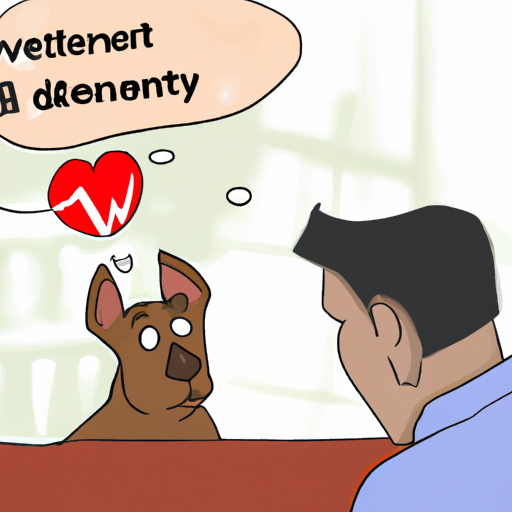Our faithful canine companions are more than just pets; they’re family. So it’s only natural that you, as a caregiver, would want to understand and recognize any health issues your dog might face. One such concern is congestive heart failure.
1. Understanding Congestive Heart Failure
Congestive heart failure (CHF) in dogs is a condition where the heart can’t pump sufficient blood to meet the body’s needs, leading to a buildup of fluid in the heart and other organs. Just like in humans, it’s a serious condition requiring immediate veterinary attention.
2. Recognizing the Symptoms
One of the best ways you can help your dog is by recognizing the signs of congestive heart failure. Here are some symptoms to look out for:
- Coughing: Particularly after exercise or at night, it’s a common symptom caused by fluid buildup in the lungs.
- Difficulty Breathing: You’ll notice your dog panting excessively or struggling to catch their breath.
- Decreased Activity Level: Your typically energetic pal may start showing signs of lethargy and won’t be as excited about walks or playtime.
- Unexplained Weight Loss
- Fainting Spells
3. Risk Factors and Prevalence
Certain breeds are more at risk of developing CHF, such as small breeds like Cavalier King Charles Spaniels, Dachshunds, and Yorkshire Terriers. However, large breeds like Doberman Pinschers and Boxers can also be affected.
| Breed | Risk Level |
|---|---|
| Cavalier King Charles Spaniels | High |
| Dachshunds | High |
| Yorkshire Terriers | High |
| Doberman Pinschers | Medium |
| Boxers | Medium |
4. What to Do If You Notice Symptoms
If you notice any of these symptoms in your dog, it’s crucial to consult your veterinarian immediately. Though CHF is irreversible, early detection and treatment can significantly improve your dog’s quality of life.
5. Keeping Your Dog’s Heart Healthy
Prevention is always better than cure. Regular exercise, a balanced diet, and routine vet check-ups are crucial for maintaining your dog’s heart health.
Frequently Asked Questions
Q: Can congestive heart failure be cured in dogs?
A: CHF is not curable in dogs, but it can be managed with medication, diet, and lifestyle changes.
Q: Will my dog be in pain?
A: CHF can cause discomfort, but your vet can prescribe medication to manage this.
Q: How long can a dog live with CHF?
A: With proper treatment and care, dogs can live for several months to a few years after a CHF diagnosis.
Q: Can I prevent CHF in my dog?
A: While you can’t prevent CHF entirely, maintaining a healthy lifestyle can reduce the risk. Regular check-ups, a balanced diet, and regular exercise are key.
Q: How is CHF diagnosed in dogs?
A: Your vet will use a combination of physical examination, history, X-rays, and other tests to diagnose CHF.
Remember, you’re your dog’s best advocate. By understanding the signs of congestive heart failure, you can ensure they get the care they need.



